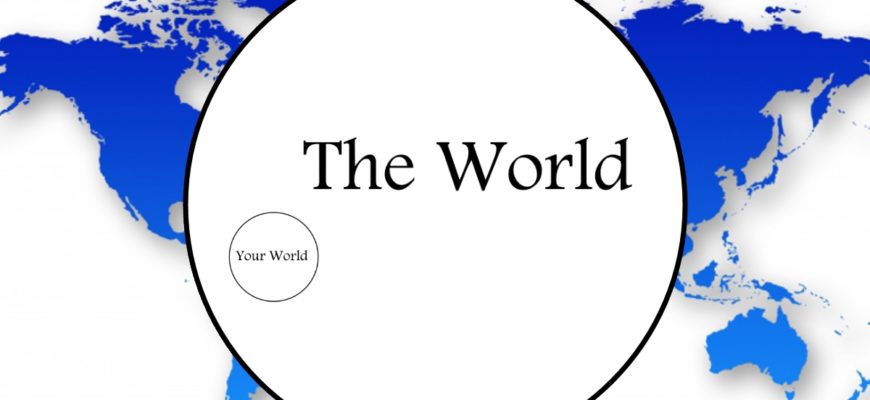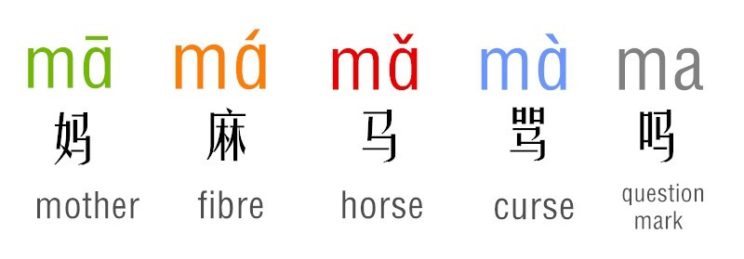I came to the realization recently that my whole world has basically started and stopped in my own backyard. I grew up here in Canada, I have mostly Canadian friends and everything I know about my life has basically been developed through the lens of North American pop culture (thank you Simpsons, John Hughes, and Alt Rock music).
This may seem fine and pretty normal for our culture but when you realize that Canada and the United States collectively only account for about 5 percent of the global population and over 7.1 billion people live outside of North America, it can make your world seem pretty small…
My goal became to not just learn a new language but to gain some perspective of a new and different culture and I could not think of a culture more different than my own than Chinese.
So after spending this last month rigorously studying the Chinese language, meeting with members of our local Chinese population and attempting to gain some much-needed perspective on the Chinese culture here is what I learned:
A layered language
In Mandarin, each word or phrase has a deep cultural meaning.
The word ‘China’ in Mandarin is Zhōngguó, but zhōng & guó have their own unique meanings.
Zhōng means ‘middle’ and guó means ‘country’. This is very fitting since China finds itself in the middle of 14 other nations (more than any other nation on earth) and for thousands of years considered them-self to be the center of the world, known as ‘middle country.’
Same words, very different meaning
The Chinese language is broken down into 4 different tones that can each drastically change the definition of the words they are associated with.
These tones are broken into a flat tone, a rising tone, a rising and falling tone and a straight falling tone.
To give an example, the word ‘ma’ can mean 4 very different and somewhat dangerous to confuse words, such as mother, horse, fibrous crops, or to scold/curse depending on how you say it.
This is why it’s very easy to insult a Chinese person’s mother and why you should always double check your tattoos before they go on your body…
Population Overload
China has roughly 1.3 billion people living there but sometimes that number is hard to wrap your head around. After speaking with some local Chinese Canadians I was very surprised to find that most of them considered a very small city in China to be 1 million people.
To put that in perspective, Vancouver CA and Seattle WA each have about 600,000 people and they wouldn’t even be large enough to be considered a very small city in China.
Kind, Polite, Respectful
I can’t speak for all Chinese people, just my experience with the Chinese Canadians I met, but judging by what I learned from their culture and my interactions so far I can say that they are very wonderful people.
They are very respectful, especially to their elders, they say thank you almost as much as Canadians say I’m sorry, and they pride themselves on being extremely hospitable.
They are also extremely family focused. It’s not uncommon to have the grandparents be majorly responsible for raising their grandchildren while both of the parents work up to 12 hours per day doing hard jobs just to pay the bills.
Chinese Canadian boom
I sat down with Dr. Hua Meng of the Okanagan Chinese Cultural Society to get a better understanding of the recent influx in Chinese immigration and to discuss some of the challenges they may be facing.
It seems the main reasons most Chinese people come to Canada is to seek a better lifestyle, gain more job opportunities and ensure a good education.
For education specifically, students in China undergo rigorous testing with extreme pressures to perform. This focus on testing instead of applied learning can be a double-edged sword as it can lead to an acute ability to memorize difficult information but hurt their ability to think critically or creatively.
Poo Poo Pollution
Environmental concerns also play a major factor in immigration. The Chinese government’s focus on fossil fuels has left much of the country in a smog filled environment. Canada’s lush forests and fresh air are a welcome alternative to much of their lands unhealthy airways.
The Great-Wall of language barriers
One of the biggest issues I came across in attempting to learn Mandarin was how difficult it was to understand anyone speaking it and how embarrassed I was to try to speak it back to them.
I obviously didn’t want to insult anyone by screwing up a word but sitting in silence left me equally confused as they all spoke way too fast for me to understand.
As frustrating as this was I realized it was probably 10 times more difficult for them trying to learn English. Immigrants not only have to learn our language but they have to do so while struggling through their new daily lives.
Although amazing programs like the Okanagan Chinese Cultural society, the Ki-Low-Na Friendship Society, and Kelowna Community Resources all offer help to newly landed immigrants, I think we could all learn to speak slower and be more inclusive to those struggling to become part of our community.
Language is a doorway
“Knowledge of languages is the doorway to wisdom.” ‒ Roger Bacon
Expanding my horizons to another part of the globe has been truly eye-opening. I now not only have a new insight into a different world but a bridge to communicate with a whole new group of interesting and valuable people.
Don’t waste your life in a tiny cultural bubble… reach out and discover the other 95 percent of the world. It’s as simple as just learning to say hello (Nǐ hǎo).






